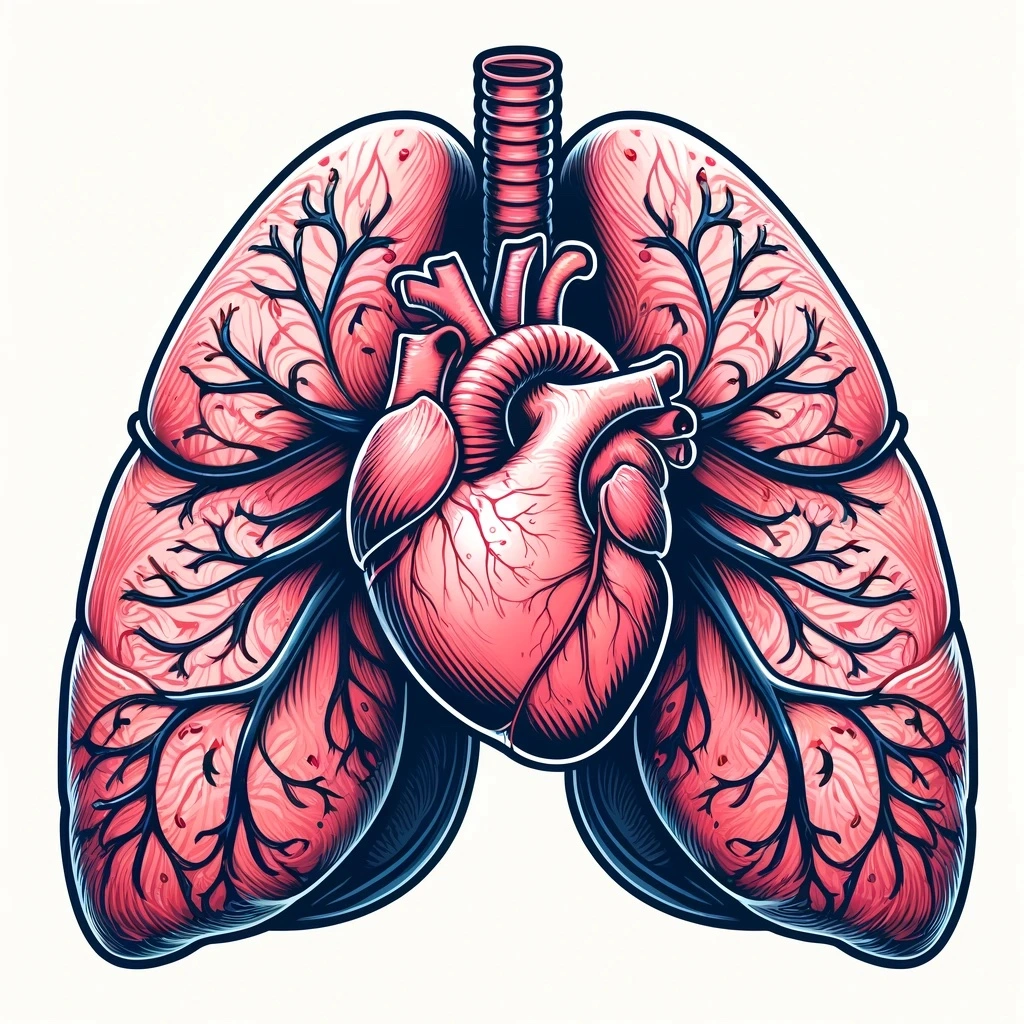The Heart and Lung Act And Comp Statutes In PA
This blog post hopes to simplify and explain the Heart and Lung Act and other related statutes. Here, we will only focus on injured workers in PA.

Heart And Lung Vs. Workers’ Comp
The Heart and Lung Act provides salary and medical expense compensation to certain public safety workers. This includes: police officers, firefighters, and some state employees. Heart and Lung offers more generous benefits than the Workers’ Compensation Act, but it has a more limited scope.
The main difference lies in the extent of coverage. The Workers’ Comp Act provides for partial compensation for both temporary and permanent disabilities. Heart and Lung offers full salary and benefits, but only for temporary disabilities that occur while performing job duties. Meaning, an injured employee under the Heart and Lung Act receives their full salary instead of a percentage.
Eligibility
To qualify for Heart and Lung, the injury must occur while performing official duties, not just during work hours. Heart and Lung compensation covers only incidents that arise from the hazardous nature of the specific job duty.
How It Works
The Heart and Lung Act mandates its provisions, making them non-elective. This means eligible employees must use this benefit, and not opt out.
When collective bargaining agreements stipulate such procedures, grievance arbitration often resolves disputes over eligibility or entitlements.
Heart and Lung covers injuries incurred in the performance of duties. This requires that injuries must directly relate to an employee’s work responsibilities to qualify for the benefits.
Full Salary
Full salary compensation refers to the gross salary before taxes and other deductions. This ensures that employees receive their complete earnings during their period of temporary disability. However, this does not include additional earnings such as overtime or holiday pay, which vary annually and between workers. The Act prevents financial harm for critical public safety workers while they recover from work-related personal injuries.
Due Process
Legal procedures under the Heart and Lung Act mandate a due process hearing before terminating benefits. The employer can terminate benefits if the worker’s disability becomes permanent. The employer can also terminate benefits if the worker can return to work.
This legal protection ensures that employees have an opportunity to contest any changes in their benefit status.
Heart And Lung Vs. Act 534/632
Act 534/632 applies to employees of state penal and mental institutions. This Act guarantees full salary benefits if an inmate injures a worker. The Act also ensures full salary benefits if the worker suffers an injury while performing job duties.
How It Works
Unlike the Heart and Lung Act, Act 534/632 does not distinguish between temporary and permanent disabilities. The Act provides complete coverage for workers until they can return to work. This ensures long-term support for those working in high-risk environments within state institutions.
Heart And Lung Vs. Act 17
Act 17 of 2021 covers the unique challenges posed by the COVID-19 pandemic. It offers temporary compensation for public safety workers and National Guard members affected by COVID-19. This Act limits benefits to 60 days per incident.
County Jail Or Workhouse Employees
County jail or workhouse employees injured by inmate violence receive full salary benefits under the Heart and Lung Act. However, these benefits last only for the period during which the worker qualifies for workers’ comp.
Federal Laws
Federal laws also overrule the Pennsylvania Workers’ Compensation Act for specific groups of workers. The Federal Employers’ Liability Act (FELA) covers injured railroaders employed in interstate commerce, providing compensation for work-related injuries.
The Longshore and Harbor Workers’ Compensation Act protects maritime workers. This includes longshore and harbor workers. This Act covers those injured on or near navigable waters or in the shipbuilding industry.
The Jones Act offers compensation for seamen injured aboard flag ships and passenger vessels.
The Federal Employees’ Compensation Act (FECA) covers federal civilian employees.
The Defense Base Act (DBA) covers employees of contractors working on military bases outside the United States.
These statutes ensure that employees working in high-risk federal careers receive proper compensation for work-related injuries. They override state workers’ comp provisions where applicable.

Collective Bargaining
Collective bargaining plays a vital role in the specifics of workers’ compensation within the framework of these statutes. Agreements can establish supplemental benefits, alternative dispute resolution systems, and other specific procedures related to workers’ compensation.
Regulations allow for alternative dispute resolutions through negotiated agreements. This approach allows for tailored compensation arrangements that meet the unique needs of different worker classes of service.
State Employees’ Retirement System
The State Employees’ Retirement System can also influence workers’ compensation benefits. For example, workers with expired partial disability benefits can only receive additional service-connected disability supplements if they continue to receive partial disability benefits. This interaction ensures that workers’ comp benefits coordinate with retirement benefits.
The State Employees’ Retirement Board administers these retirement plans. They ensure that employees hired by the state receive the necessary support under the State Employees’ Retirement Code.
Wrap Up
Knowing these statutes can help injured workers navigate their rights and benefits more effectively. Talking with a workers’ compensation attorney can ensure that you receive the benefits you deserve. This includes benefits administered by the Department of Labor and the specifics of employer contributions towards retirement benefits.
Trying to navigate this alone can get confusing. Let one of our experienced lawyers help you. Reach out to our offices 24/7 for a free consultation (215) 609-4183.



